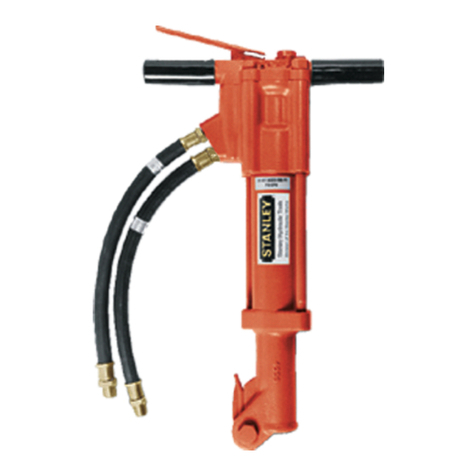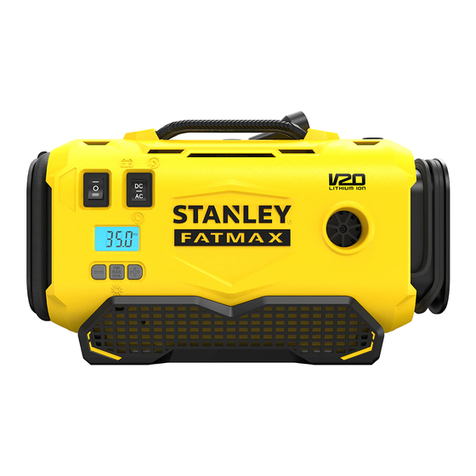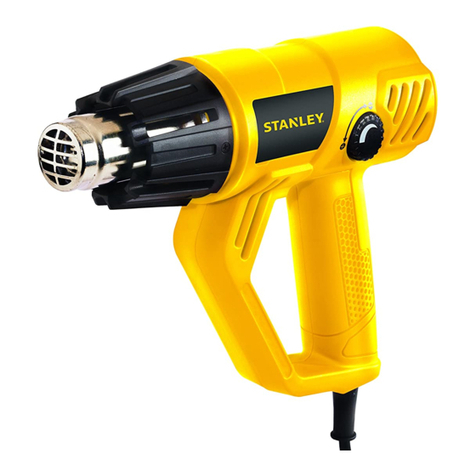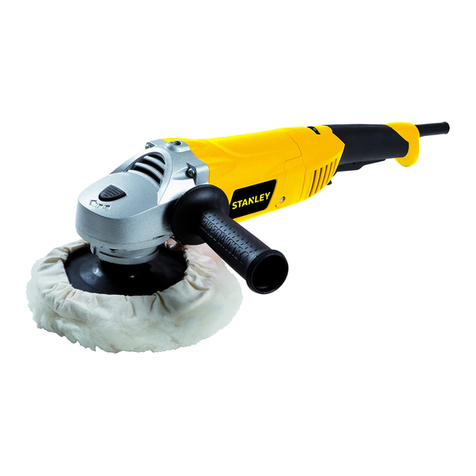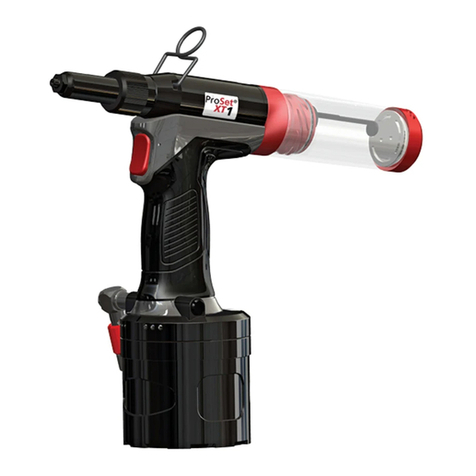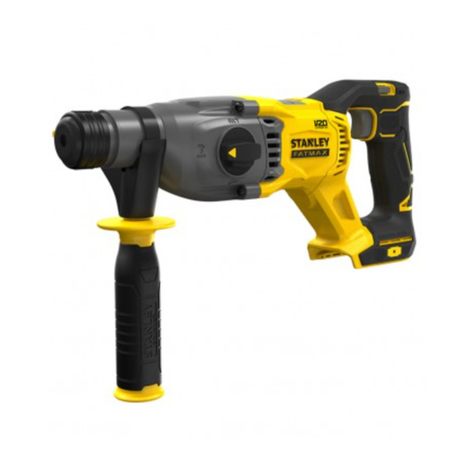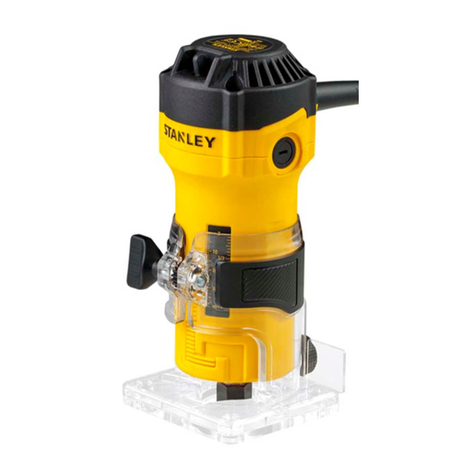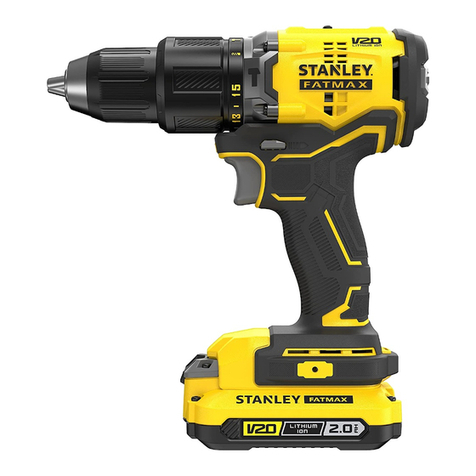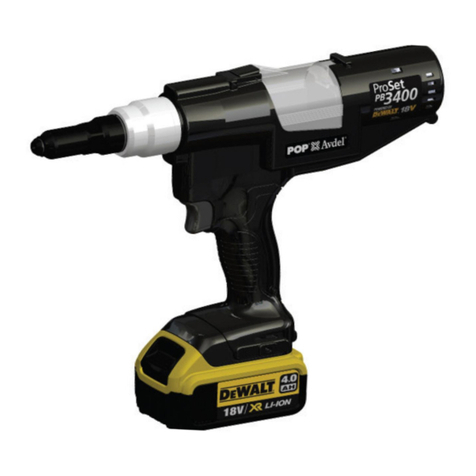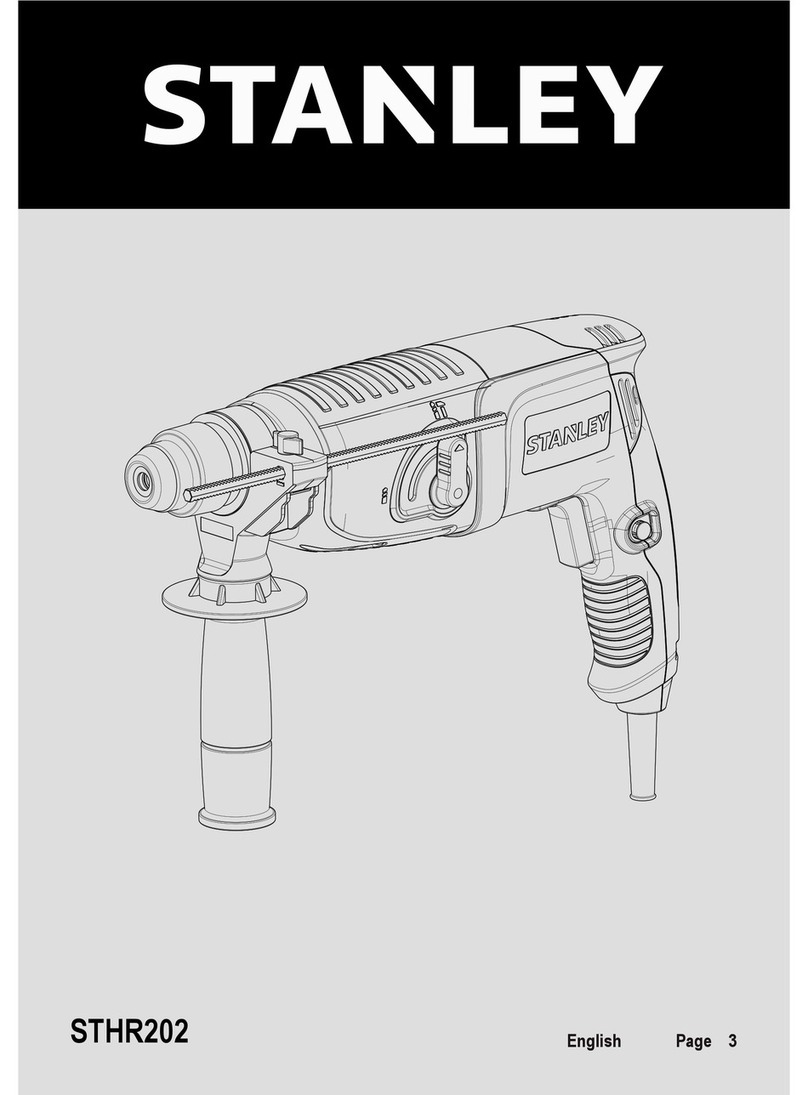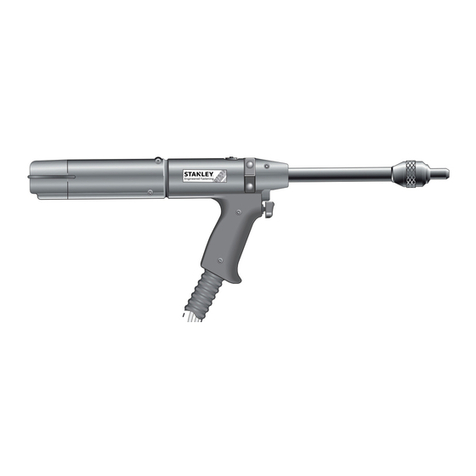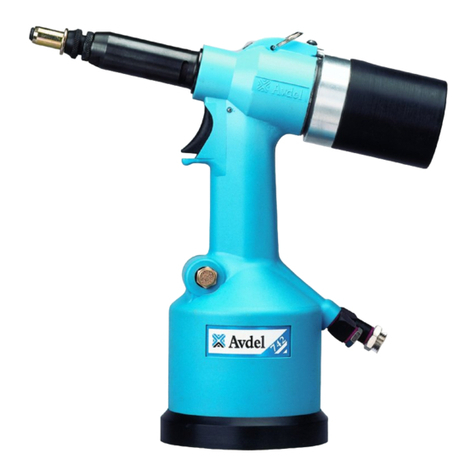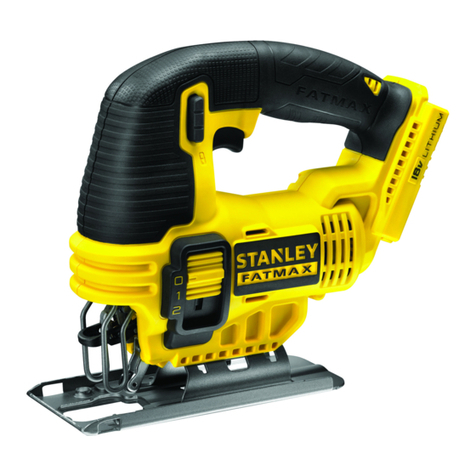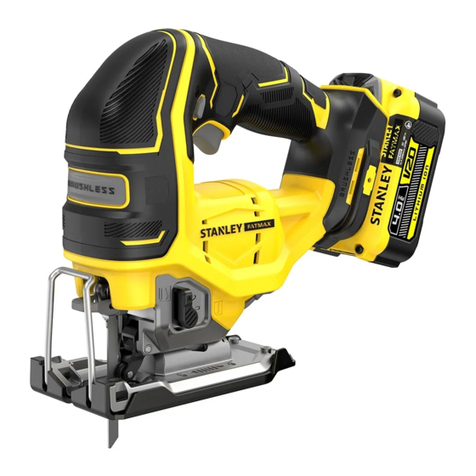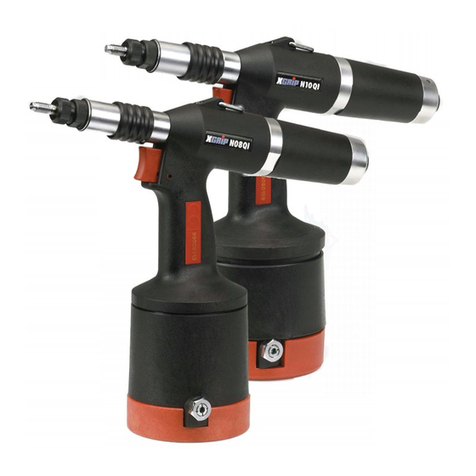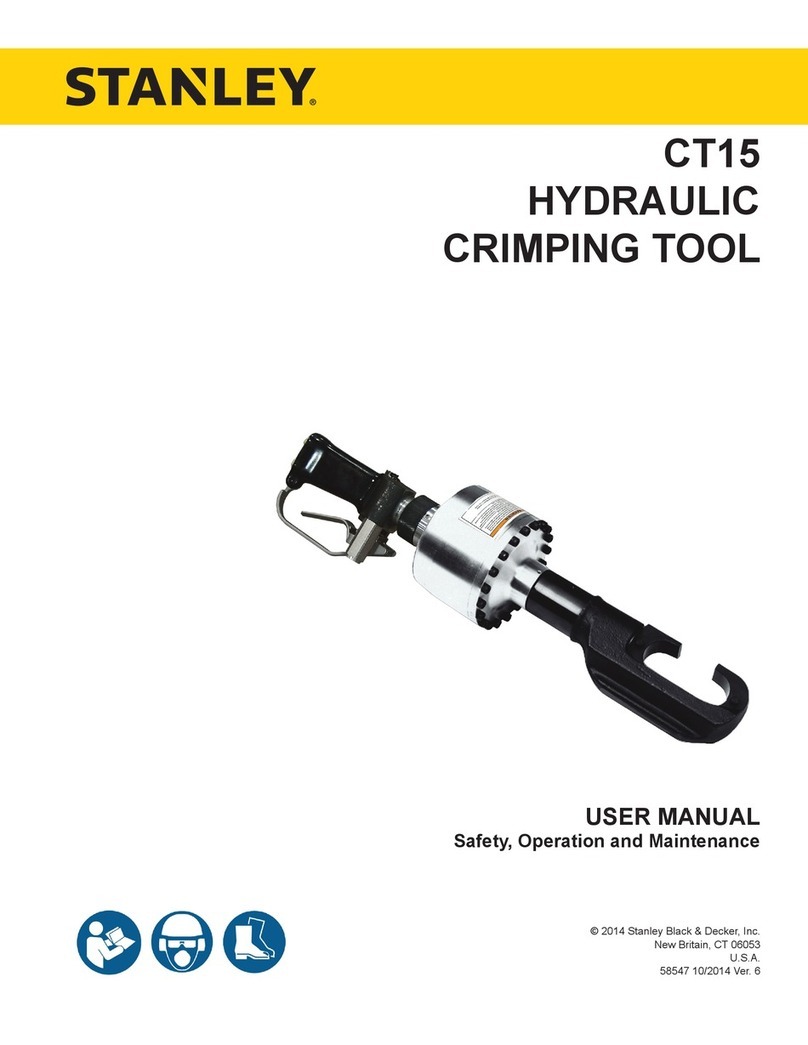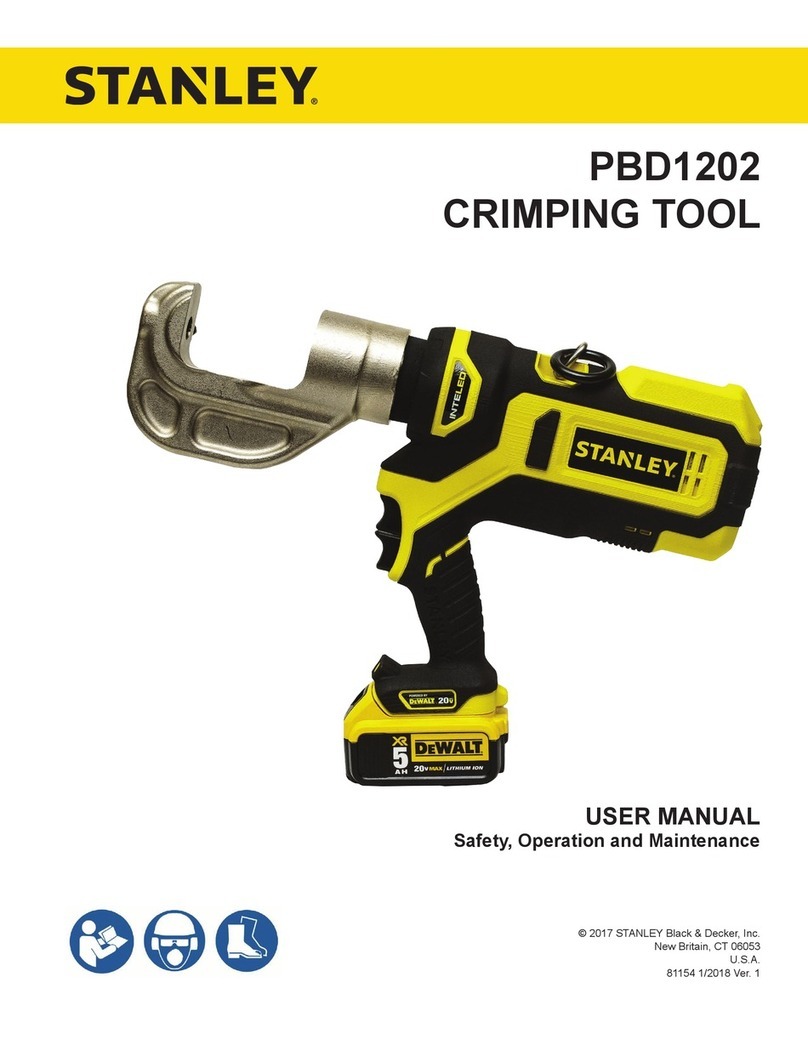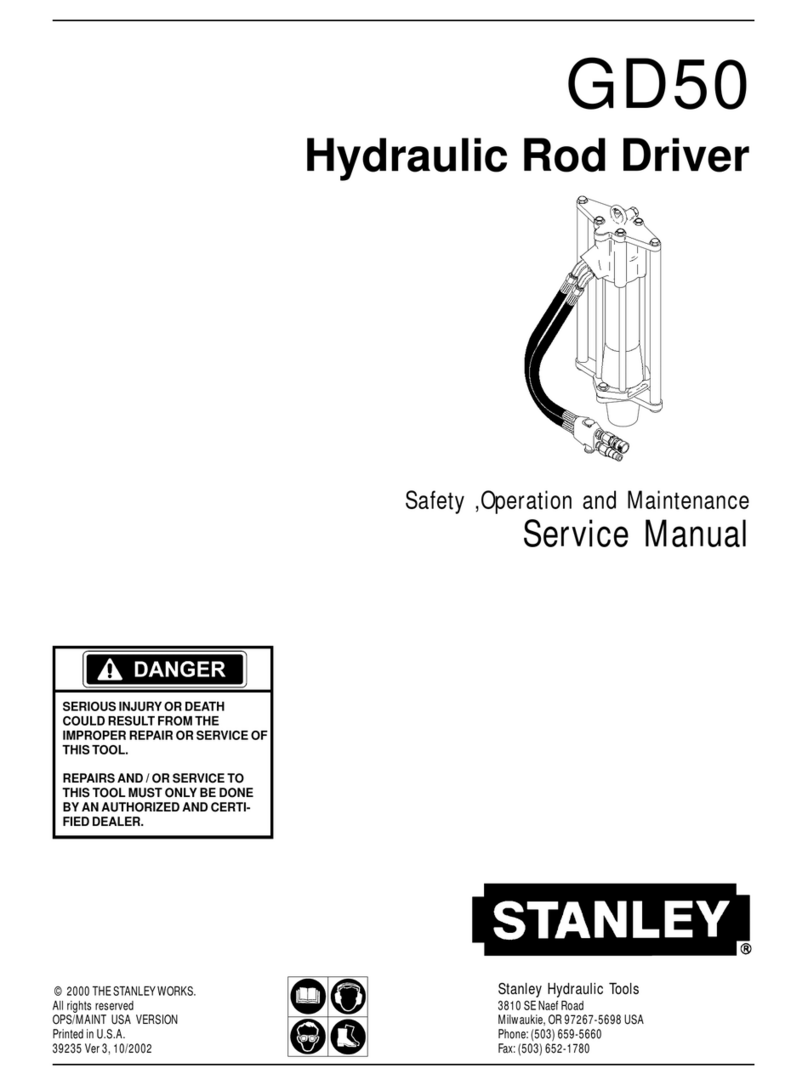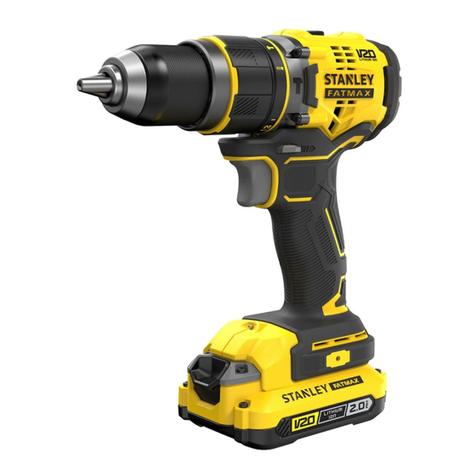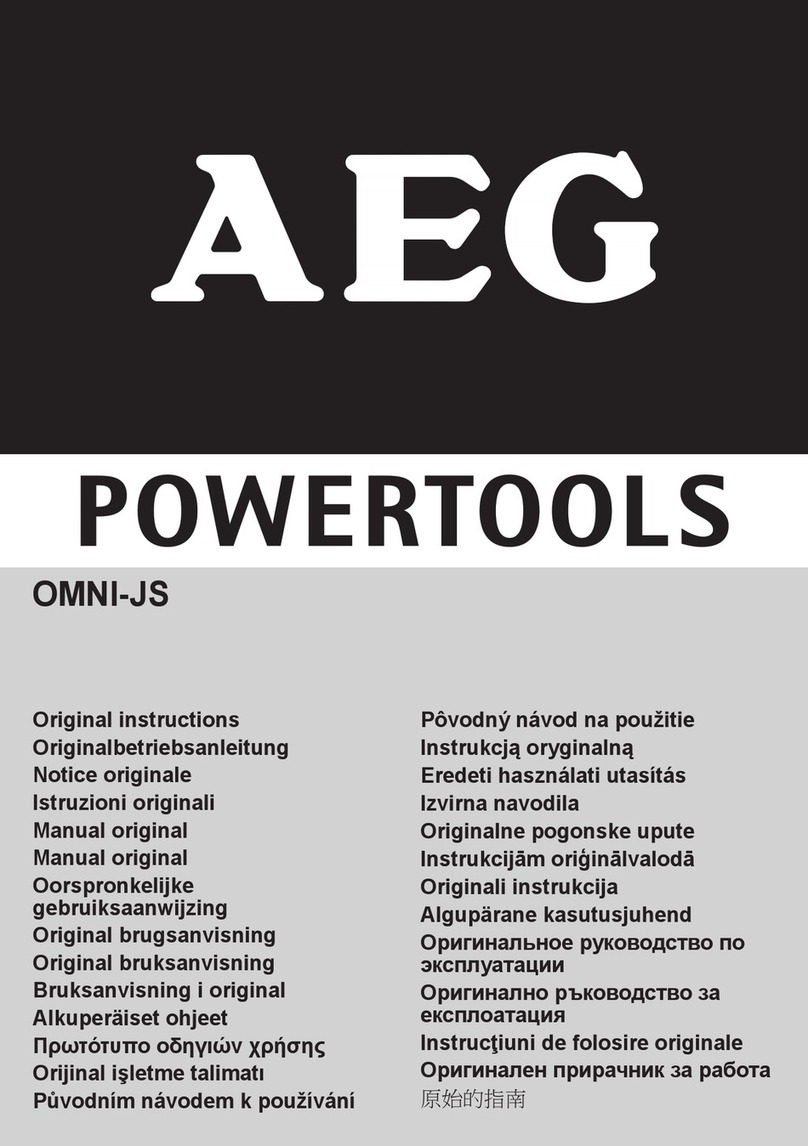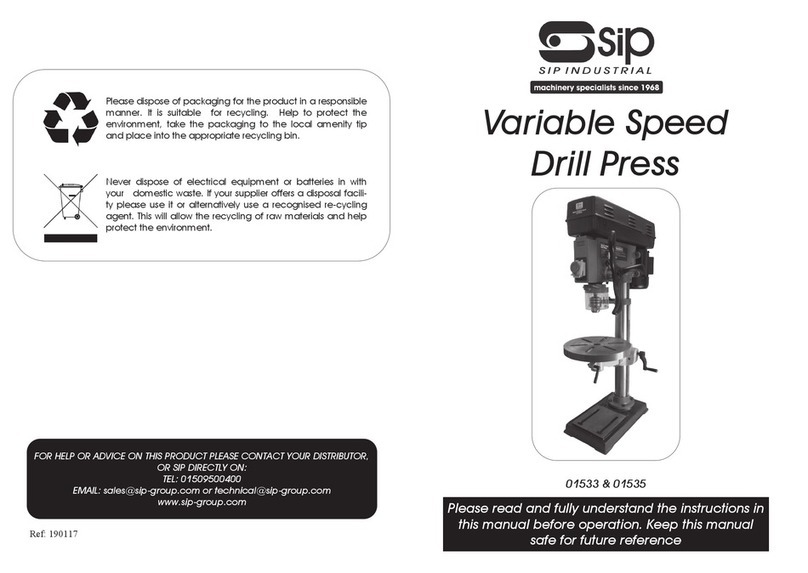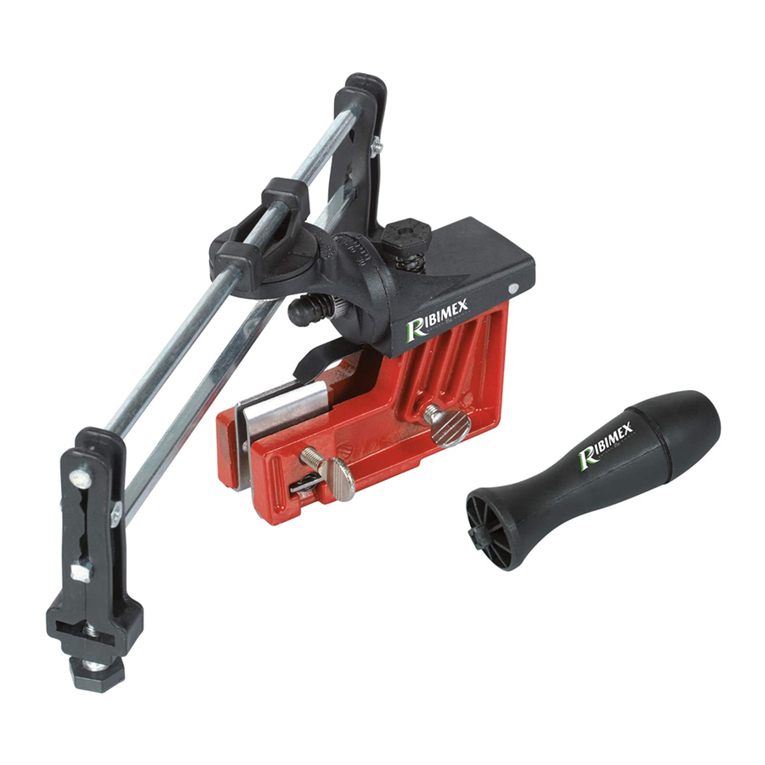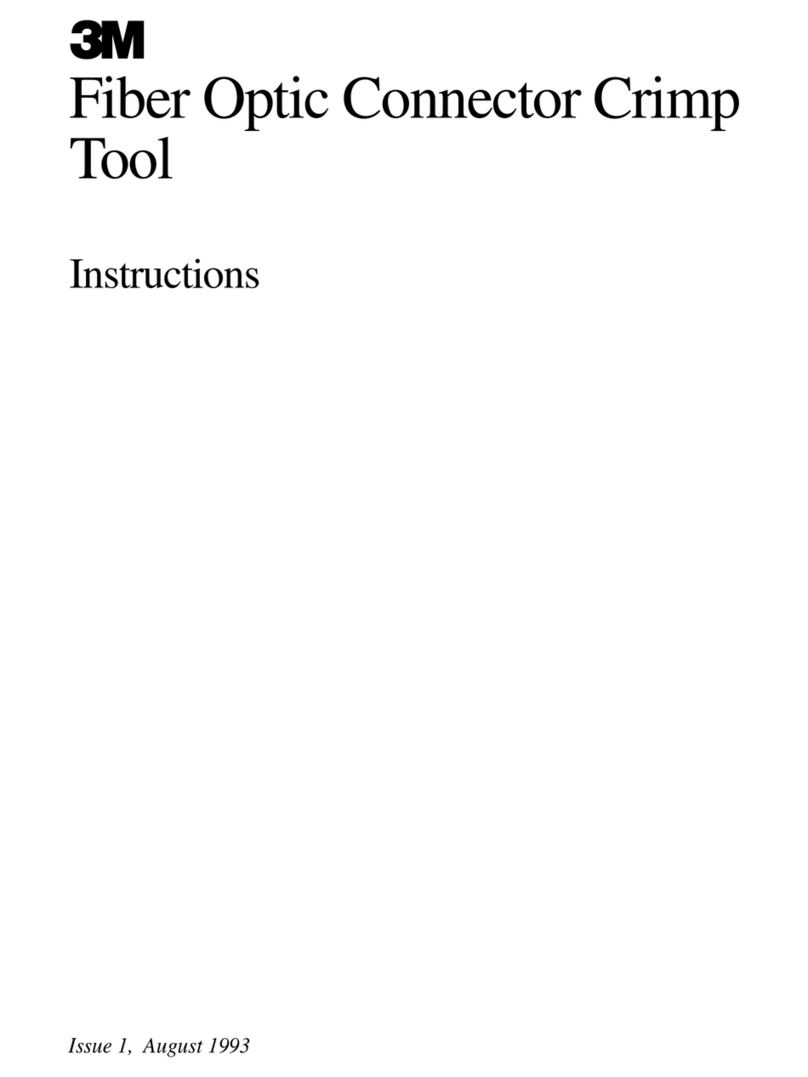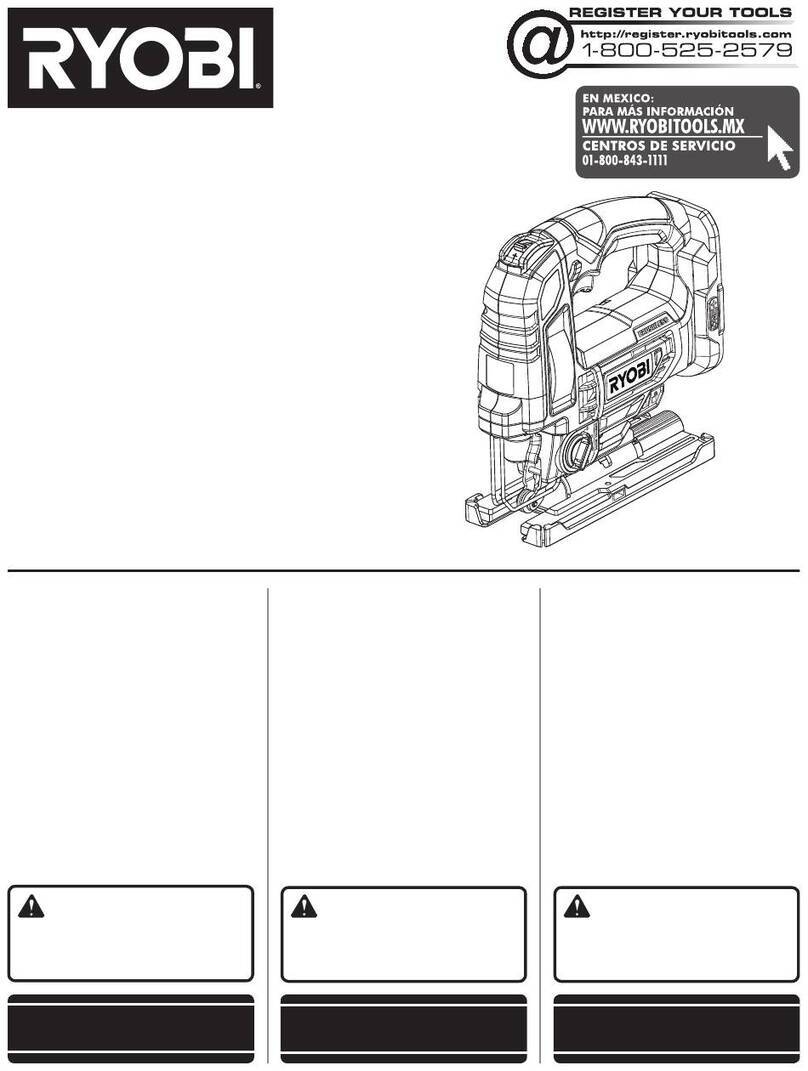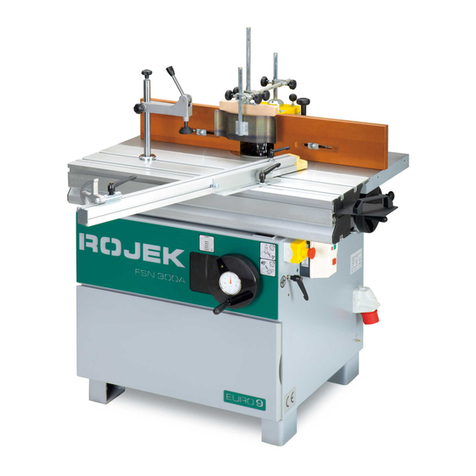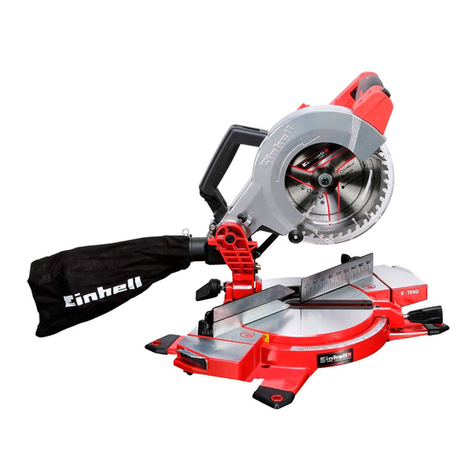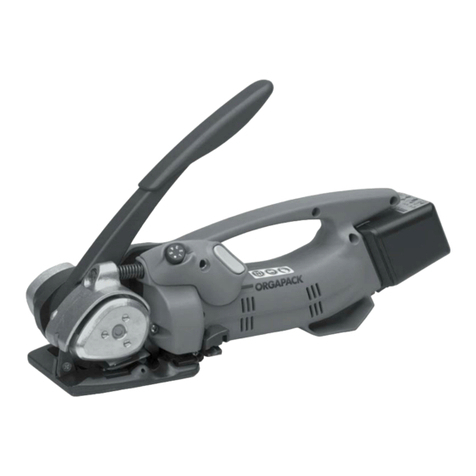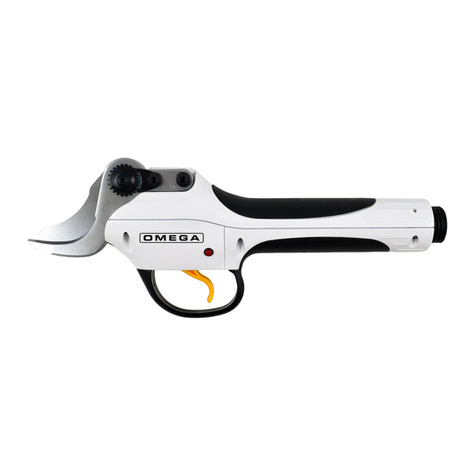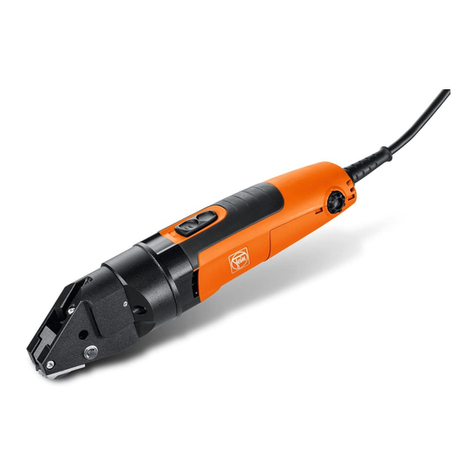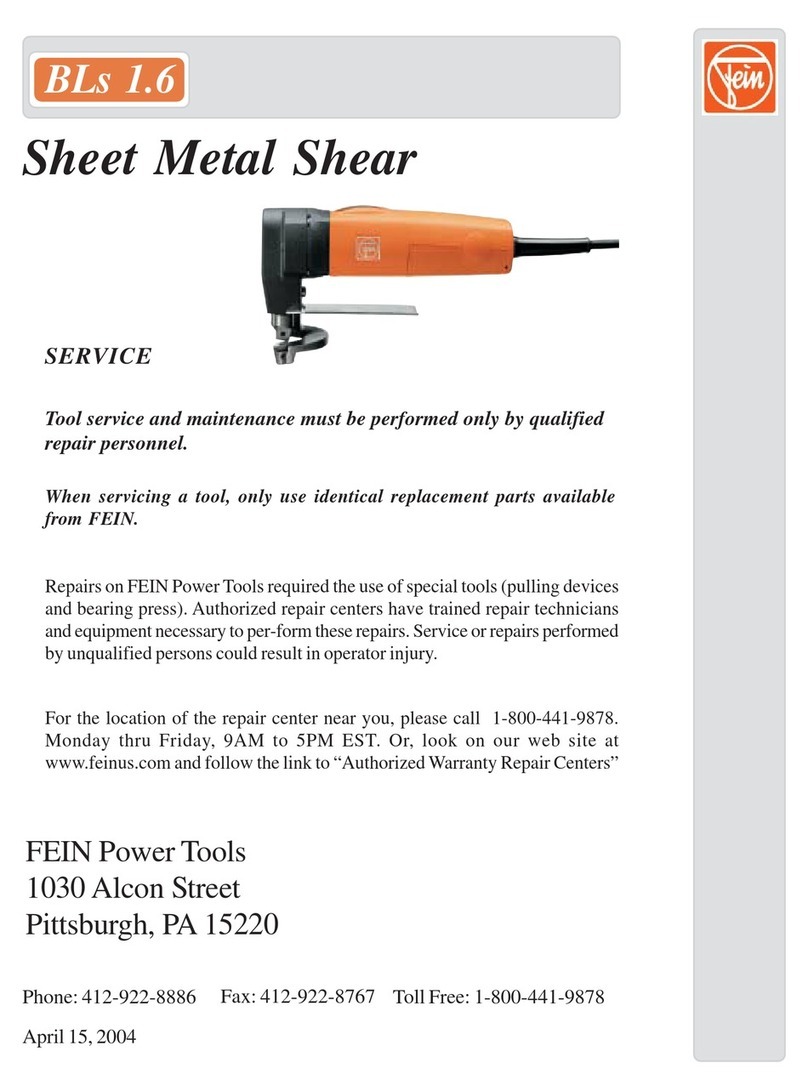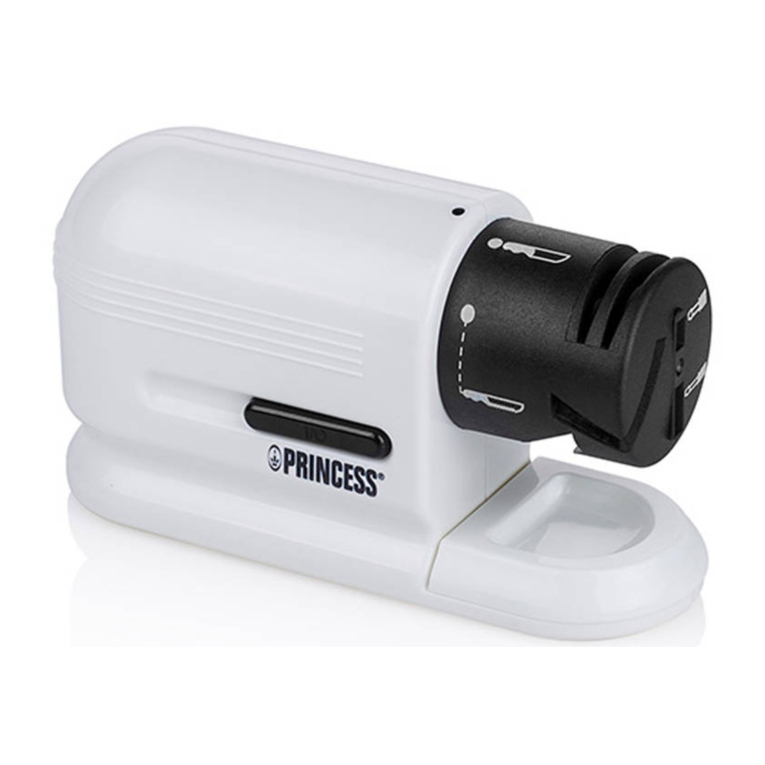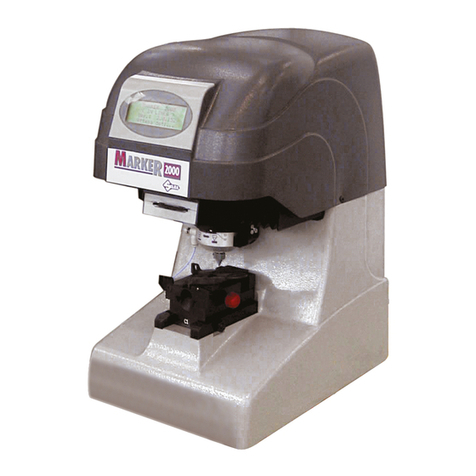
7
ENGLISH
(Original instructions)
changing accessories, or storing power tools. Such
preventive safety measures reduce the risk of starting
the power tool accidentally.
d. Store idle power tools out of the reach of children
and do not allow persons unfamiliar with the power
tool or these instructions to operate the power
tool. Power tools are dangerous in the hands of
untrained users.
e. Maintain power tools and accessories. Check for
misalignment or binding of moving parts, breakage
of parts and any other condition that may affect the
power tools operation. If damaged, have the power
tool repaired before use. Many accidents are caused
by poorly maintained power tools.
f. Keep cutting tools sharp and clean. Properly
maintained cutting tools with sharp cutting edges are
less likely to bind and are easier to control.
g. Use the power tool, accessories and tool bits etc.
in accordance with these instructions, taking into
account the working conditions and the work to
be performed.
Use of the power tool for operations different from
those intended could result in a hazardous situation.
h. Keep handles and grasping surfaces dry, clean and
free from oil and grease. Slippery handles and
grasping surfaces do not allow for safe handling and
control of the tool in unexpected situations.
5. Battery tool use and care
a. Recharge only with the charger specied by the
manufacturer. A charger that is suitable for one type
of battery pack may create a risk of re when used with
another battery pack.
b. Use power tools only with specically designated
battery packs. Use of any other battery packs may
create a risk of injury and re.
c. When battery pack is not in use, keep it away from
other metal objects, like paper clips, coins, keys,
nails, screws, or other small metal objects, that
can make a connection from one terminal to
another. Shorting the battery terminals together may
cause burns or a re.
d. Under abusive conditions, liquid may be ejected
from the battery; avoid contact. If contact
accidentally occurs, ush with water. If liquid
contacts eyes, additionally seek medical help.
Liquid ejected from the battery may cause irritation
or burns.
e. Do not use a battery pack or tool that is damaged
or modied. Damaged or modied batteries may
exhibit unpredictable behaviour resulting in re,
explosion or risk of injury.
f. Do not expose a battery pack or tool to re or
excessive temperature. Exposure to re or
temperature above 130 °C may cause explosion.
g. Follow all charging instructions and do not charge
the battery pack or tool outside the temperature
range specied in the instructions. Charging
improperly or at temperatures outside the specied
range may damage the battery and increase the risk
of re.
6. Service
a. Have your power tool serviced by a qualied repair
person using only identical replacement parts.
This will ensure that the safety of the power tool
is maintained
b. Never service damaged battery packs. Service of
battery packs should only be performed by the
manufacturer or authorized service providers.
Additional power tool safety warnings
@Warning! Additional safety warnings for jigsaws
and reciprocating saws
uHold the power tool by insulated gripping surfaces,
when performing an operation where the cutting
accessory may contact hidden wiring. Cutting
accessory contacting a “live” wire may make exposed
metal parts of the power tool “live” and could give the
operator an electric shock.
uUse clamps or another practical way to secure and
support the workpiece to a stable platform.
Holding the work by hand or against your body leaves it
unstable and may lead to loss of control.
uKeep hands away from cutting area. Never reach
underneath the work piece any reason. Do not insert
ngers or thumb into the vicinity of the reciprocating blade
and blade clamp. Do not stabilize the saw by gripping the
shoe.
uKeep blades sharp. Dull or damaged blades may cause
the saw to swerve or stall under pressure. Always use the
appropriate type of saw blade for the workpiece material
and type of cut.
uWhen cutting pipe or conduit, make sure that they are
free from water, electrical wiring, etc.
uDo not touch the workpiece or the blade immediately
after operating the tool. They can become very hot.
uBe aware of hidden hazards, before cutting into walls,
oors or ceilings, check for the location of wiring and
pipes.
uThe blade will continue to move after releasing the
switch. Always switch the tool off and wait for the saw
blade to come to a complete standstill before putting the
tool down.
